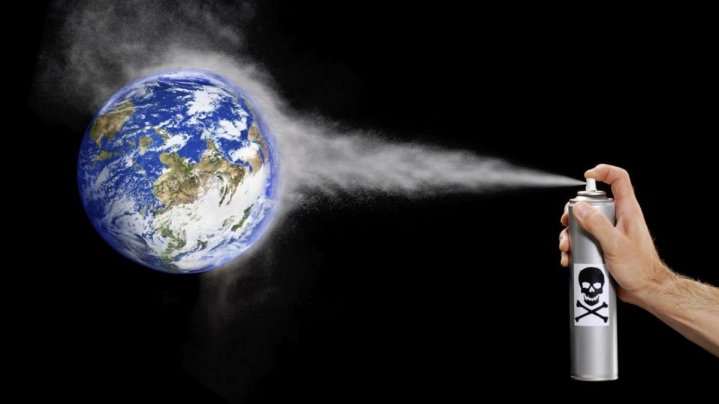
Artificially spreading aerosols into Earth's atmosphere, in order to fight climate change, could bring along dangerous side effects, reveals a new research. Scientists believe that sending a plane to spray sulfate aerosols into the sky will help in cooling down the temperature on Earth.
However, it has a very good chance of creating unintended consequences, such as severe drought and more hurricanes, said the scientists, who conducted a model test to see how spraying the sulfate would affect Earth's climate.
The model shows how spraying aerosols once a year, in both hemispheres, would drastically impact the climate between 2020 and 2070. The scientists, who ran the test, discovered that it could unleash brutal negative consequences in both the regions. The findings were published in the journal Nature Communications.
This method of climate engineering, which is known as the stratospheric aerosol injection, is currently in a speculative stage, though it appears to be a well-supported system by science. Essentially, aerosols are supposed to create a reflective layer around Earth that is capable of blocking out part of the Sun, which in turn is expected to reduce the temperature of our planet.
This process already occurs naturally when volcanoes erupt. Injecting aerosols artificially, however, might create negative effects depending on how aerosols interact with the jet streams and various currents of air around the globe, including the location.
As per the scientists, spraying aerosol in the northern hemisphere would lead to cyclones in the North Atlantic, similar to the ones that occurred during this summer and fall. In the sub-Saharan Africa and parts of India, on the other hand, the process could create severe drought, they warn.
So, while it would be "good for the southeast US, the Caribbean, and Mexico in terms of dissipating storms," it might cause disasters in other parts of the world, said lead author Anthony Jones of the United Kingdom's national weather service told CarbonBrief.
In case of the southern hemisphere, spraying aerosol wouldn't cause drought, but it could create more tropical storms in the North Atlantic, which is not necessarily welcome, considering the damages that have already taken place the past season due to hurricanes, such as Irma.
This isn't the first time that scientists have voiced their concerns over climate engineering, also called geoengineering. It could very well set the stage for global conflict between temperate and tropical countries.
Also Read: Over 15,000 scientists sign open letter warning the mankind about 'vast human misery'
It's definitely an interesting idea and it's always good to keep the options open, especially when we are on the verge of reaching a dangerous irreversible tipping point due to climate change.









